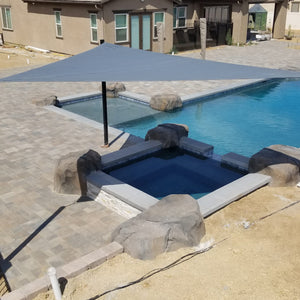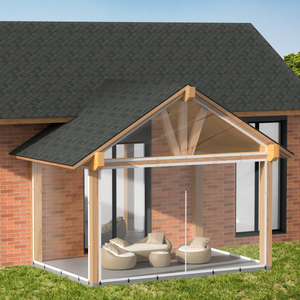
Comparing Tarp Materials: Vinyl vs. Canvas vs. Mesh
When it comes to protecting cargo, equipment, or creating temporary shelters, tarps are a reliable solution. However, not all tarps are created equal. Choosing the right material—vinyl, canvas, or mesh—depends on your specific needs and the application. This article compares these three popular tarp materials, examines their advantages and disadvantages, and highlights how products like lumber tarps can be applied in specific scenarios.
Vinyl Tarps: Heavy-Duty Protection
Vinyl tarps, such as the Heavy-Duty 18 Oz. Black Lumber Tarp, are constructed from polyvinyl chloride (PVC), making them one of the most durable and waterproof tarp options. They excel in heavy-duty applications where strength and resilience are critical.
Advantages:
- Waterproof: Ideal for protecting cargo from rain, snow, and moisture.
- Durability: Resistant to tearing, abrasion, and UV rays.
- Versatility: Available in various sizes and weights.
Relevant Application:
Vinyl tarps are commonly used to secure flatbed loads, making them a staple in industries like transportation and construction. Explore high-quality options in the lumber tarps collection.
Canvas Tarps: Breathable and Eco-Friendly
Canvas tarps provide a natural, breathable solution for moderate-duty applications. While not entirely waterproof, treated options offer decent water resistance and are well-suited for tasks requiring airflow.
Advantages:
- Breathability: Prevents moisture buildup, reducing mold or mildew risk.
- Sustainability: Made from natural fibers, ideal for eco-conscious users.
- Durability: Stands up to rough handling and moderate environmental stress.
Application in the Lumber Industry:
While vinyl tarps dominate heavy-duty needs, canvas tarps can be an excellent secondary cover to prevent condensation when hauling sensitive materials like wood or fabric-based items.
Mesh Tarps: Lightweight and Breathable
Mesh tarps are best suited for applications requiring airflow, shade, or containment of lightweight debris. They are not waterproof, but their breathability makes them an excellent choice for warm climates or specific industrial uses.
Advantages:
- Airflow: Prevents heat buildup and condensation.
- Lightweight: Easy to handle and transport.
- Cost-Effective: Affordable solution for temporary coverage.
When to Use Mesh Tarps with Lumber Tarps:
Mesh tarps can be layered with vinyl tarps to shade loads while providing ventilation, particularly for loads sensitive to heat.
Lumber Tarps: Versatile and Essential for Flatbed Cargo
The lumber tarps collection includes high-quality vinyl tarps designed for protecting flatbed cargo. These tarps are tailored for heavy-duty applications where durability, waterproofing, and secure coverage are paramount.
Key Product Highlight:
- Heavy-Duty 18 Oz. Black Lumber Tarp: Designed for flatbed truck cargo, this tarp offers excellent durability and waterproofing.
Applications:
- Securing lumber, steel, and other large cargo on flatbed trailers.
- Providing excellent weather protection and ensuring compliance with load-securing regulations.
Choosing the Right Tarp for Your Needs
When selecting between vinyl, canvas, and mesh tarps, consider your specific requirements.
- For heavy-duty protection: Vinyl tarps are a top choice, especially for flatbed loads.
- For breathable coverage: Canvas tarps work well in moderate climates or as secondary layers.
- For shading and ventilation: Mesh tarps are ideal for airflow and containment needs.
Conclusion
Understanding the differences between vinyl, canvas, and mesh tarps helps you choose the right solution for your cargo or project. The lumber tarps collection offers durable and reliable options for protecting flatbed loads, ensuring your cargo remains secure and undamaged. Browse the collection to find the perfect tarp for your application and transport needs with confidence.



